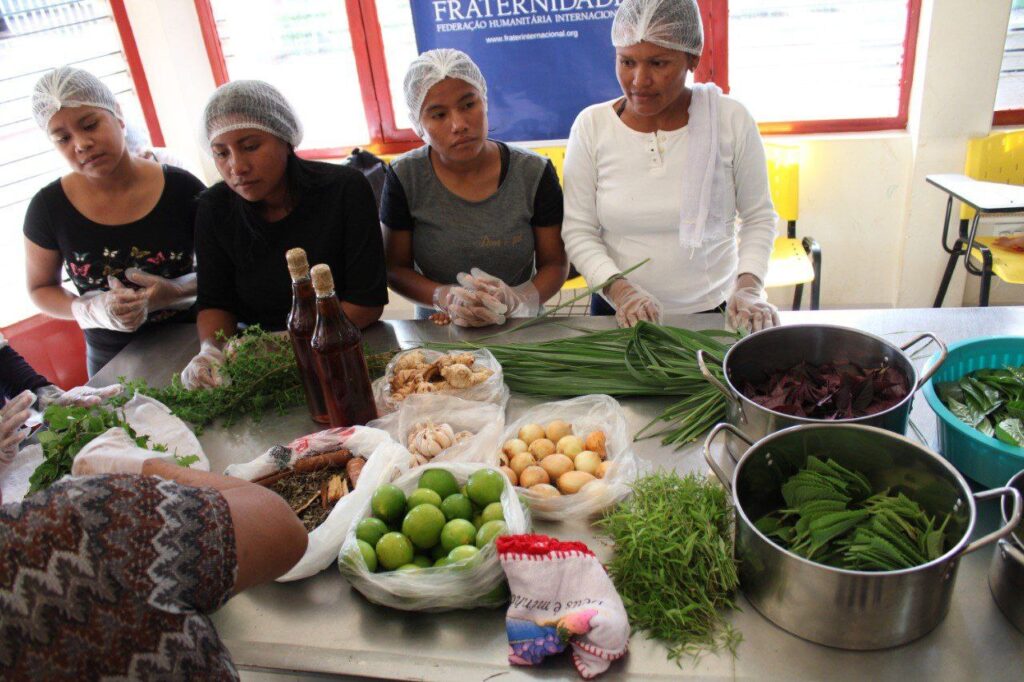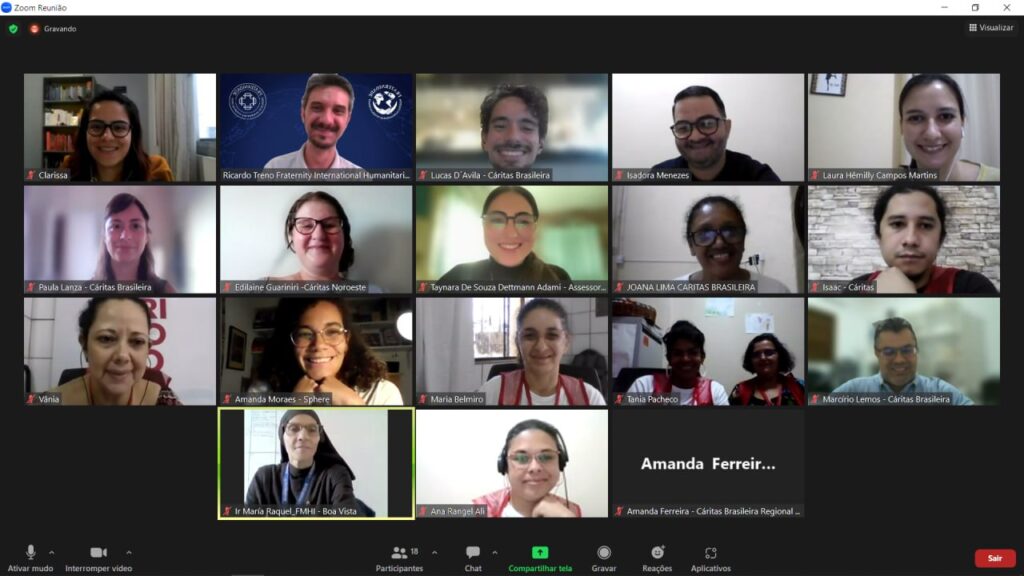Today, June 20th, is a day to reflect on the challenges and difficulties faced by families who are forced to leave their countries, jobs, homes and loved ones, due to armed conflicts, climate change or persecution for political, religious, racial and ethnic reasons.

Forced displacement in the world, according to a report by the UN Refugee Agency (UNHCR), will reach more than 100 million people facing this serious humanitarian crisis situation in 2023, with 40% of these people being children who, in many cases, are unaccompanied by their family members. When arriving in a new country, these human beings have to deal with loss and trauma.
Regarding that date, Imer, a humanitarian volunteer actor who has already worked in several missions carried out by the Fraternity – International Humanitarian Missions (FIHM) in several countries, points out that “the creation of World Refugee Day, in a way, shows that this reality of refuge, of people moving to other countries, it is something that has already become established in humanity, on the planet. Because it is not a random thing, it is a permanent and current issue, for various reasons, whether climatic, military, economic, it is a situation that cannot remain alien to anyone, even if this reality is not close to some countries or people, it is something that humanity is experiencing in a certain way, both for those who have to migrate and for those who have to receive them.”

“In a world of so much misinformation and indifference, commemorative dates created by the UN play a central role in focusing people’s attention. The theme of refuge, as one of the main effects of social and humanitarian ills on the planet, has on June 20th an opportunity to be remembered, but above all to lead people to action, to service and to break the barrier of indifference with the most needy,” points out Gabriel Cyrilo, a humanitarian volunteer actor who has already worked in the Roraima Humanitarian Mission and is currently serving in the Poland Humanitarian Mission.
“A great lesson I have learned from these last few years is that migrants and refugees, far beyond the labels, are human beings with many capacities, which are not always valued by highlighting only their needs and vulnerabilities, which at that moment are great. In addition, respect for the space of cultural expression, sharing knowledge and, above all, openness, respect and tolerance for others are values that do a deep work in the conscience of those who are willing to serve,” reports Gabriel.
This year, the theme of World Refugee Day is “Hope away from home: for an inclusive world with refugee people,” which reflects the need to seek solutions among organizations that provide humanitarian service, to facilitate the integration of refugees in host societies, providing means for their effective inclusion and opportunities, so that they can contribute to local development with their knowledge, talents and determination.


When a refugee arrives in an unknown country, they are looking for security, welcome, support for a new beginning and even psychosocial help. It is essential that they find perspectives to prosper, return to their country of origin, if they so wish and if the conditions allow it, or enter the labor market in the country where they were welcomed.
At the Roraima Humanitarian Mission, the Intervention Sector for Means of Life and Durable Solutions is making it possible for several training courses to be offered to Venezuelan expatriates at the Indigenous Cultural and Training Centre (CCFI), so that they have access to the job market and can continue their lives independently.

“The Continuing Training Program for Development (PFCD) offered by the CCFI is an important element in the training process through which the indigenous population served goes through a process of monitoring their personal and professional development, synthesizing vocational guidance, adaptation courses such as Portuguese and IT, more specialized technical training and ending with knowledge about entrepreneurship and notions about financial education,” explains the humanitarian volunteer actor, Ricardo Treno.
“In this way,” continues Ricardo, “students undergo a broader process of integration into the Brazilian social context, something that would not happen if we only offered loose courses, without a common thread. Likewise, the professors who teach at CCFI claim to learn a lot about the reality of Venezuelan migration and the specificities of indigenous peoples’ learning, updating their methodologies and growing as professionals.”

As a Sphere focal point in Brazil and Portugal, the Fraternity – International Humanitarian Missions (FIHM), through its humanitarian actors, is also continuing the cycle of training on the Sphere Humanitarian Standards, with humanitarian representatives from various organizations in different countries.
Through the Humanitarian Training Intervention Sector, this year the organization promoted training in an online format for members of Caritas Brazil, when it addressed the main chapters of the Sphere Handbook: Humanitarian Charter; Code of Conduct & Protection Principles; Essential Humanitarian Standard; WASH; Food Security and Nutrition; Shelter and Settlement; Health and Sphere in Urban Settings.
In Europe, in cooperation with Save the Children Poland | Humanitarian Leadership Academy (HLA), Sphere Association, the Fraternity – Humanitarian Missions (FIHM) is continuing the cycle of Workshops with humanitarian representatives from Eastern European countries, directly and indirectly involved in the humanitarian response given to Ukrainians fleeing their country as a result of the war. The first took place in the city of Warsaw, Poland.

The meetings in Europe give humanitarian actors opportunities to address fundamental issues in humanitarian responses, such as the importance of adherence and monitoring so that the principles of the Code of Conduct of the International Red Cross and the Humanitarian Charter, contained in the Sphere Handbook, are fulfilled.
Today, in addition to being a day conducive to reflection on the need for humanitarian aid to refugees, it is also a day to celebrate the strength, courage and determination of these people who, despite all the challenges, continue their lives in other countries in hope for better days.






